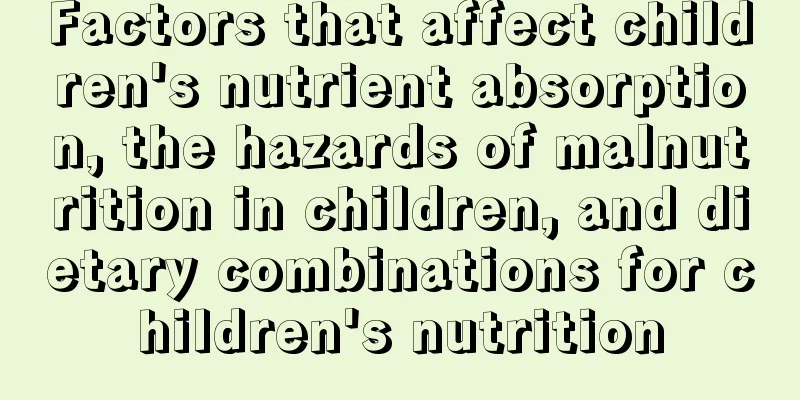Feeding knowledge for babies aged 1-2 months

|
Pay attention to the baby's feeding after birth. If parents can pay attention to the baby's feeding, it will be very helpful for the care of the children. However, parents should feed the baby differently and feed the baby according to the age. Let us learn about the feeding knowledge of 1-2 month old babies. Expectant mothers can also learn about the precautions for breastfeeding, which is good for the baby. Feeding method: 1. Babies fed with breast milk: If the breast milk is very good, the number of breastfeeding should gradually stabilize. As long as the weight can increase by 150-200 grams per week, it means that the feeding effect is very ideal. If the weight gain is less than 100 grams per week, it means that the breast milk is not enough. At this time, the baby will often cry and need to be fed with milk once more. It is best to schedule the time to add milk once when the mother's milk supply is the lowest (between 4pm and 6pm), adding 120 ml each time. If the mother gets proper rest after adding milk, the breast milk secretion increases, or the baby's crying at night decreases, you can continue like this. If the baby's crying due to hunger at night does not change after feeding with milk once, and there is not much breast milk, then change the breastfeeding before going to bed at 10-11 pm to feeding with milk to ensure that the mother gets enough rest at night. In short, whether to increase the amount of milk once or twice should be determined based on the baby's weight. In addition, during this month mothers should pay attention to protecting their nipples and not let their babies suck on one nipple continuously for more than 15 minutes. Keep the nipples clean to prevent the baby from sucking too much and injuring the nipples, which may cause bacteria to invade and cause mastitis. By the way, babies who are breastfed generally do not get sick during the first 1-2 months. Although loose stools, seven or eight bowel movements a day, spitting up, eczema, etc. may occur, there is no need to worry as long as the baby is in good spirits and eats well. 2. Babies fed with milk: The most important thing is not to let the baby eat too much, so as not to increase the burden on the hydration organs. Generally speaking, for babies with a standard birth weight of 3-3.5 kg, it is appropriate to drink about 600-800 ml of milk every day during the period of 1-2 months. This should be divided into 7 times a day, with 100-200 ml each time. If the baby drinks 6 times, each time should be 140 ml. For babies who eat too much, even though they can eat 150-180 ml each time, it is best not to exceed 150 ml, otherwise it will increase the burden on the kidneys and digestive organs. If the baby seems not full and cries after eating 150 ml, you can let the baby drink about 30 ml of boiled water and add some white sugar appropriately. Do not add sugar when mixing milk with milk powder, otherwise it will make your baby too fat. If a milk-fed baby defecates 3-4 times a day, there is no need to worry as long as he is in good spirits. After the baby is one month old, you should pay attention to preventing rickets. In addition to taking the baby outdoors to bask in the sun often, you should give the baby 400 international units of vitamin D every day, that is, concentrated cod liver oil drops. Start with 1 drop per day and increase gradually. There are scientific methods to feed babies with milk powder. While creating a quiet and warm feeding environment for the baby, you must also master the correct and comfortable feeding method, so that the baby can enjoy the deliciousness of milk powder happily. It should be noted that there are many precautions when feeding with milk powder. For example, the milk powder cannot be too concentrated, otherwise it will increase the burden on these organs, causing dysfunction of the baby's organs and causing symptoms such as abdominal distension, diarrhea, and constipation. It is best to feed the baby some water between two meals of milk powder. |
<<: Four fruits that may affect children's health
>>: Introduction to the treatment of mycoplasma infection in children
Recommend
Tips for preventing high school students from getting into trouble
The third year of high school is a very important...
What are the methods to reduce jaundice in babies?
It is very common for babies to have symptoms of ...
What is the standard height and weight for a one-year-old baby?
Babies are the happy pills of a family and the ne...
Children are easily irritable?
Generally speaking, everyone knows that children ...
What to do if baby has eczema in private parts
Eczema is actually one of the simpler skin diseas...
What can children eat to strengthen their spleen and stomach?
Many children don't like to eat much due to s...
Signs of hunger in newborns
The most common things newborns do every day are ...
When is the season for hand, foot and mouth disease?
I believe everyone is familiar with hand, foot an...
What causes colds, fevers and coughs in children?
Children are prone to fever, which is a worry for...
Why is the baby's stool dark green?
Nowadays, every child is the treasure of the fami...
What to do if a newborn has a low fever
When a newborn has a low fever, parents should be...
How to induce sweating in children with fever
When a patient has a fever, everyone will let the...
Sleep myoclonus in children
Sleep myoclonus in children is a type of epilepsy...
What should I do if my child is anemic at one and a half weeks old?
Iron deficiency anemia is a disease that our babi...
A complete recipe for a 13-month-old baby
The baby is the happy pill of the family and the ...









